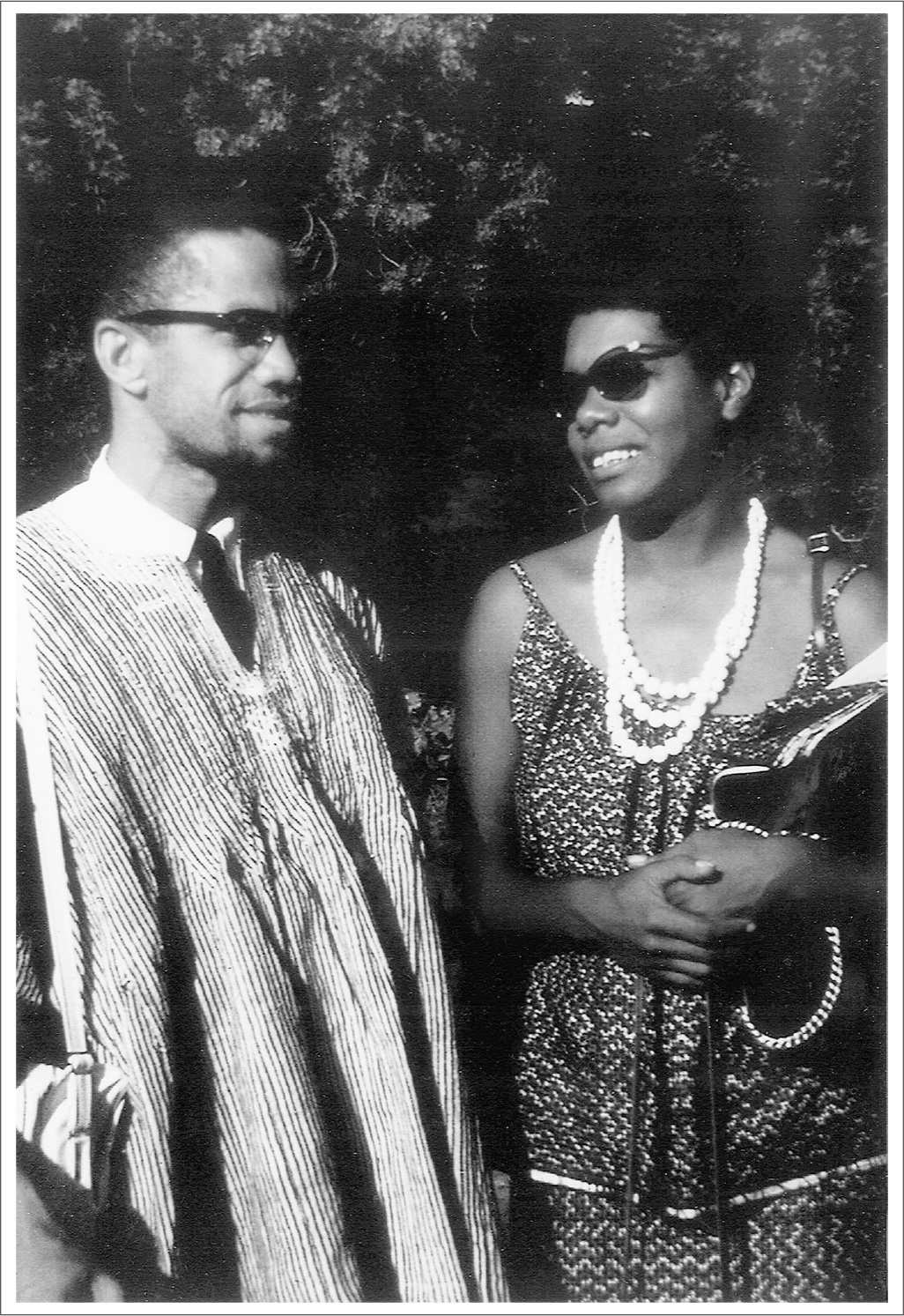



Although as Black people we had a dignity and a love of life, those qualities had to be defended constantly.
Although there was always generosity in the Negro neighborhood, it was indulged on pain of sacrifice. Whatever was given by Black people to other Blacks was most probably needed as desperately by the donor as by the receiver. A fact which made the giving or receiving a rich exchange.
Black Americans of my generation didn’t look kindly on public mournings except during or immediately after funerals. We were expected by others and by ourselves to lighten the burden by smiling, to deflect possible new assaults by laughter. Hadn’t it worked for us for centuries? Hadn’t it?
Black entertainers have had to be ten times better than anyone else, historically.
Black women whose ancestors were brought to the United States beginning in 1619 have lived through conditions of cruelties so horrible, so bizarre, the women had to reinvent themselves. They had to find safety and sanctity inside themselves or they would not have been able to tolerate such torture. They had to learn quickly to be self-forgiving, for often their exterior actions were at odds with their interior beliefs.
Despite the harshness of their lives, I have always found that older Black women are paragons of generosity. The right plea, arranged the right way, the apt implication, persuade the hungriest Black woman into sharing her last biscuit.
How could I explain a young Black boy to a grown man who had been born White?
I do not believe the N word should be used at all … It is time to retire the N word and rely on our vocabulary to speak to people without calling them any racial pejorative at all.
I don’t go for that hate talk. Negroes ain’t got time to be hating anybody. We got to get together.
I was born to work up to my grave
But I was not born
To be a slave.
I, with millions of other Americans, have the same dream Martin Luther King Jr. had; when I wake up I wish some of the things I dreamt would be true. I wish that little Black and White boys and girls would hold hands without being shocked at their nearness to each other and say in a natural way, “We have overcome.”
It was a traditional ruse that was used to shield the Black vulnerability; we laughed to keep from crying.
Malcolm X was America’s Molotov cocktail, thrown upon the White hope that all Black Americans would follow the nonviolent tenets of Dr. Martin Luther King Jr.
Prejudice is a burden which confuses the past, threatens the future, and renders the present inaccessible.
Most Black Americans ridicule and revile the Uncle Toms they see on film and television or read about. What they don’t realize is that these people stepped and fetched in a nation and time that it was hard for Black people to survive, much less find a decent job. Rarely is consideration given to the sacrifices these people made in order to feed their families, what it cost them in self-respect to make sure the next generation survived. It is these circumstances that make Mr. Paul Dunbar’s poem, “We Wear the Mask,” so poignant.
My people had used music to soothe slavery’s torment or to propitiate God, or to describe the sweetness of love and the distress of lovelessness, but I knew no race could sing and dance its way to freedom.
Since we were descendants of African slaves torn from the land, we reasoned we wouldn’t have to earn the right to return, yet we wouldn’t be so arrogant as to take anything for granted.
The Africans say that “Only a fool points to his history with his left hand.” What this means is that you must know and respect where you came from. How can you truly respect yourself if you do not know or understand the struggles and trials your people surmounted for you to be here?


The drums began. The audience pounded out the rhythm, moving it, controlling and possessing the music, the orchestra, and me.
“Uh, uh, oh huh.
O yea, freedom,
Uh huh. Uh huh.”
As the song ended, the small crowd thundered a hot appreciation. Even as I bowed, I knew the applause was only in a small part for me. I had been merely the ignition which set off their fire. It was our history, our painful passage and uneven present, that burned luminously in the dark theater.
Through the centuries of despair and dislocation, we had been creative, because we faced down death by daring to hope.
Unbidden would come the painful reminder—“Not all slaves were stolen, nor were all slave dealers European.”
Unfortunately, fortitude was not like the color of my skin, given to me once and mine forever. It needed to be resurrected each morning and exercised painstakingly. It also had to be fed with at least a few triumphs.
We are not our brother’s keeper; we are our brother and we are our sister. We must look past complexion and see community.
We must ask questions and find answers that will help us to avoid dissolving into the merciless maw of history.
Whites had been wrong all along. Black and brown skin did not herald debasement and a divinely created inferiority. We were capable of controlling our cities, our selves, and our lives with elegance and success. Whites were not needed to explain the working of the world, nor the mysteries of the mind.

